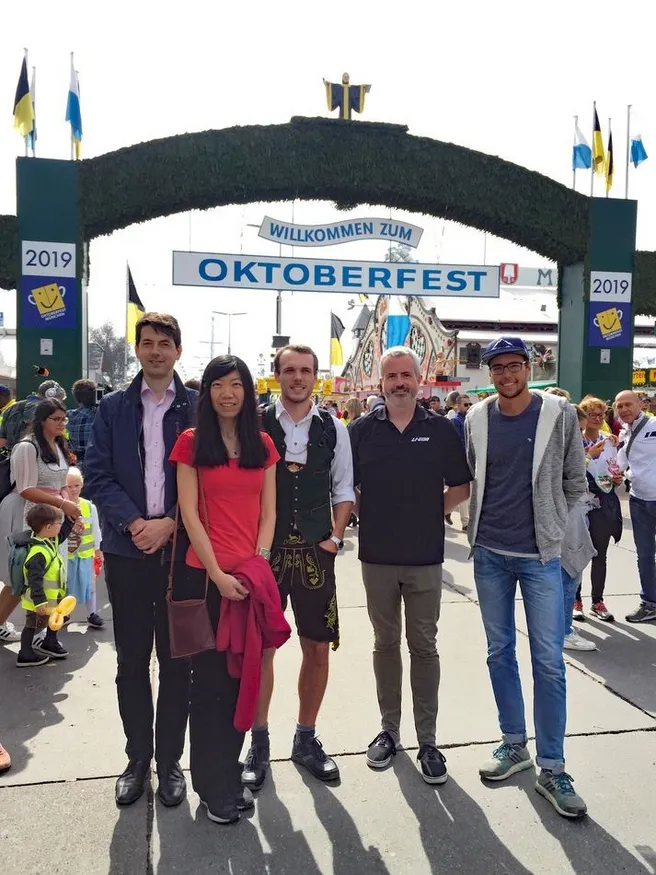In 2018 Prof. Chen and her group measured the CH4 emissions of Munich Oktoberfest, using in-situ measurements combined with a Gaussian plume dispersion model. Oktoberfest is a potential source for CH4 as a high amount of natural gas for cooking and heating is used.
Measurements were performed by walking and biking around the perimeter of the Oktoberfest premises (Theresienwiese) at different times of the day, during the week and at the weekend. The measurements show enhancements of up to 100 ppb compared to background values and measurements performed after Oktoberfest. The average emission flux of Oktoberfest is determined as 6.7 ± 0.6 μg/(m2s). Additional analyses, including the daily emission cycle and comparisons between emissions and the number of visitors, suggest that CH4 emissions of Oktoberfest are not only due to the human biogenic emissions; it is likely that fossil fuel CH4 emissions, such as incomplete combustion or loss in the gas appliances, are the major contributors to Oktoberfest emissions.
Relevant publication:
Chen, J., Dietrich, F., Maazallahi, H., Forstmaier, A., Winkler, D., Hofmann, M. E. G., Denier van der Gon, H., and Röckmann, T.: Methane Emissions from the Munich Oktoberfest, Atmos. Chem. Phys. Discuss., https://www.atmos-chem-phys-discuss.net/acp-2019-709/, in review, 2019.
Corresponding media reporting can be found here:
https://www.sueddeutsche.de/muenchen/technische-universitaet-schlechte-luft-1.4619191
https://www.br.de/mediathek/video/studie-hohe-methan-werte-auf-der-wiesn-av:5d8f8f4fdfe74c00192bcd8e
https://www.theguardian.com/environment/2019/oct/27/oktoberfest-munich-methane-emissions-environment
